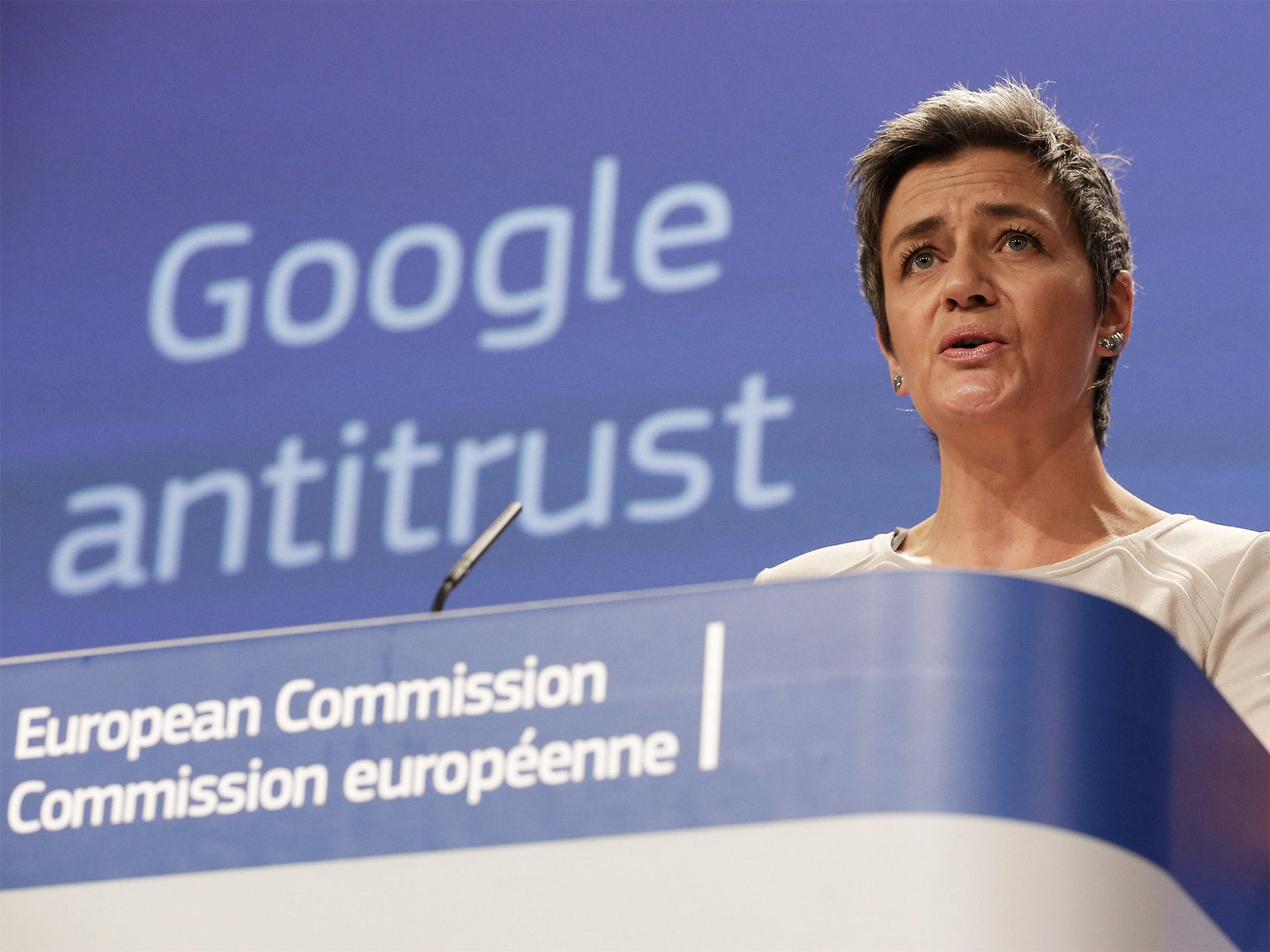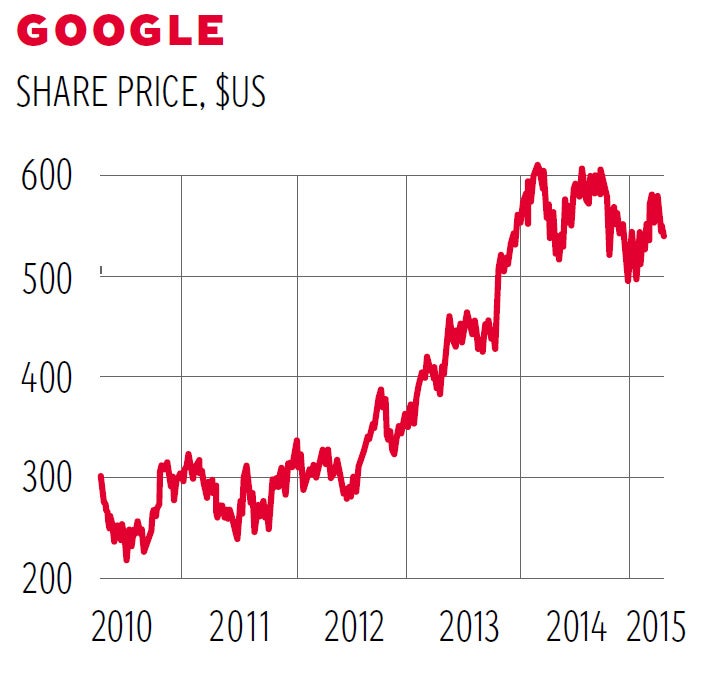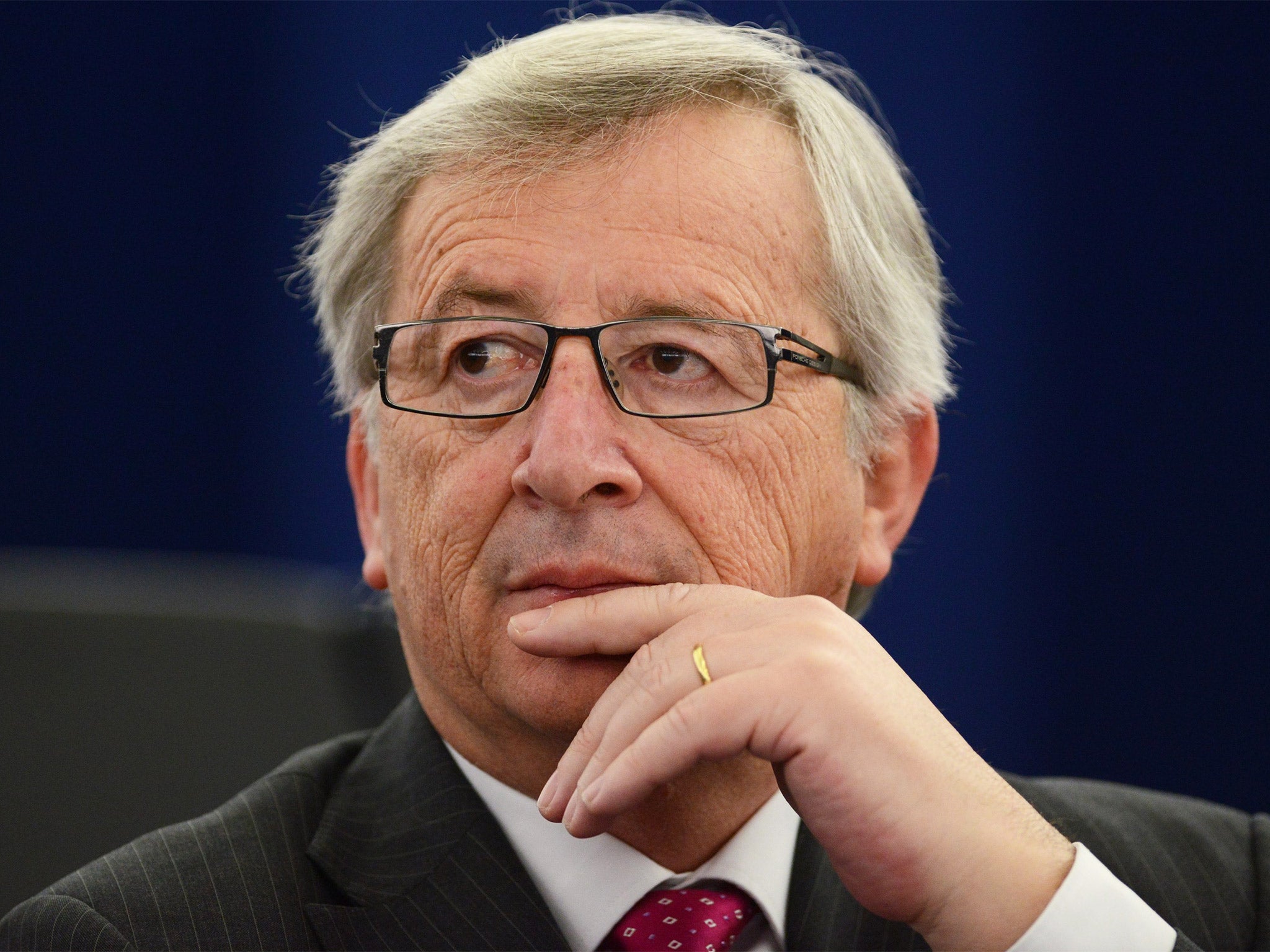Google vs the EU commissioner: Is this a David and Goliath struggle?
Margrethe Vestager, the EU's new competition watchdog and one of the most prominent and well-liked figures in Danish politics, has taken on the technology giant over its alleged abuse of the market

Google has managed to make a potentially costly enemy: Margrethe Vestager.
The European Union’s new competition commissioner has stepped up a long-running inquiry into the technology giant, formally charging Google with market abuse for the first time since the EU’s anti-trust investigation began in 2010. The action leaves Google open to potentially large fines or lengthy court proceedings.
The charges centre around Google’s online shopping comparison service, Google Shopping, which Ms Vestager alleges is unfairly favoured in search results at the expense of rivals. If, say, you search for the best price for a specific polo shirt, the results will show Google’s selection first, regardless of whether it offers the cheapest price. This becomes a problem when taking into account the fact that Google controls more than 90 per cent of the search market in Europe.
“In our experience Google Shopping always comes up first when you search at your desk,” Ms Vestager explained.
The EU’s “Statement of Objections”, as it’s known, represents a radical escalation of proceedings against Google, which began after complaints from numerous small businesses that Google was stifling competition.
Ms Vestager’s predecessor, Joaquin Almunia, was largely accommodating of Google, working on three possible settlement deals. But Ms Vestager, said to be the inspiration behind Birgitte Nyborg, the prime minister in the TV show Borgen, has adopted a more hard-line approach. Asked about the possibility of fines or legal action, the 47-year-old said: “We should not close any door. This is a Union that works on law and this is how we work.”

Microsoft found itself mired in a long legal battle with the European Union over competition issues in the past decade, eventually facing a €860m (£620m) fine.
Ms Vestager said: “Google now has the opportunity to convince the Commission to the contrary. However, if the investigation confirms our concerns, Google would have to face the legal consequences and change the way it does business in Europe.”
Adding to the technology giant’s headache, Ms Vestager has also launched a new investigation into Google’s Android, probing claims that the company uses its mobile operating system as leverage to promote its own apps and services.
The Google Shopping charges could also snowball, with Ms Vestager saying flight and hotel comparison services, and Google Maps, could be added to the Statement of Objections if infringements are discovered in these areas.
Ms Vestager, a career politician, represents formidable opposition for Google. One of the most prominent and well-liked figures in Danish politics, Ms Vestager was appointed to the Danish Social Liberal Party’s executive committee and European Affairs Committee aged just 21. Her party typically plays king-maker in coalition governments, and she has served as the country’s deputy premier and Economy minister, with some seeing her as the real power behind the scenes.
Ms Vestager said that Google was a “high priority” for her after she took the competition job, and she has met with representatives from both the company and rival businesses that lodged complaints against it. Lawyers acting for complainants have been impressed with her speed and attitude compared to her predecessor.
Ms Vestager presented her case as a David versus Goliath battle, saying: “This is about consumers getting the best possible results for their queries so they have choice, and about businesses being able to present their innovative products to consumers.”
The escalation of the competition inquiry comes amid an increasingly tough stance from European regulators towards large technology companies.
While the EU’s president, Jean-Claude Juncker, has made the establishment of a digital single market in Europe one of his top priorities, the EU is also considering tougher data protection rules that could heap costs on US companies operating on the continent.
Google has suffered from the EU’s increased scrutiny of tech companies, with the European Court of Justice last year forcing it to begin removing some search results under the “Right to be Forgotten” ruling. Google is also the subject of a number of other EU investigations, including inquiries into allegations that it duplicates copy from websites and stops advertisers from using other platforms. Ms Vestager confirmed that these investigations were on-going.

For its part, Google has gone on the front foot against Ms Vestager’s charges, publishing two blog posts arguing that its services have in fact added to competition. Amit Singhal, Google’s senior vice-president for search, wrote: “Allegations of harm, for consumers and competitors, have proved to be wide of the mark.
“We respectfully but strongly disagree with the need to issue a Statement of Objections and look forward to making our case over the weeks ahead.”
Google now has 10 weeks to address the EU’s complaints. Ms Vestager said she would not be satisfied with superficial changes to the design of search results, as Google has previously proposed in settlement talks. “It is important to rethink how to solve this,” she said. “I am looking for a solution based on principle so this is future-proof.”
Whether Google will be able to satisfy the Danish watchdog or whether this will be the first of many tussles between the two remains to be seen.
Join our commenting forum
Join thought-provoking conversations, follow other Independent readers and see their replies
Comments
Bookmark popover
Removed from bookmarks